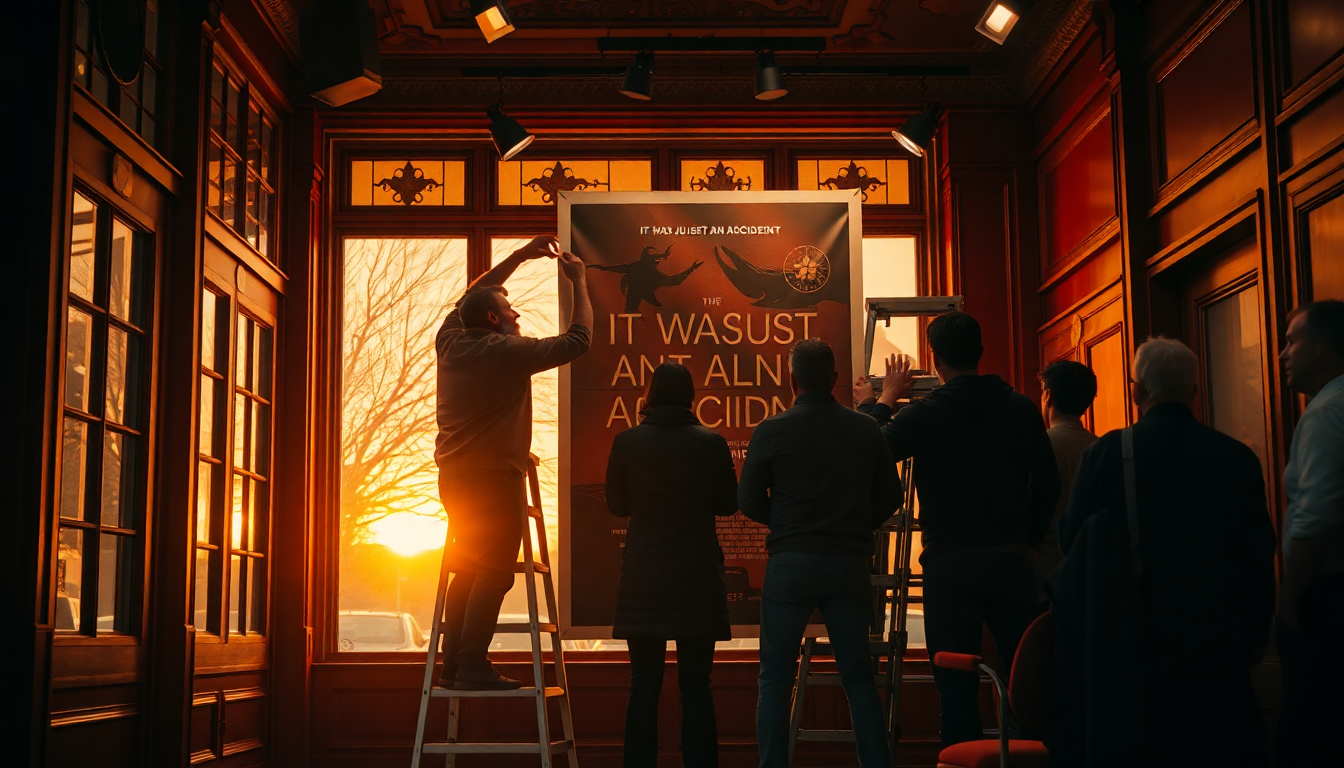Table of Contents
The film industry is buzzing with excitement as Jafar Panahi’s latest masterpiece, “It Was Just An Accident,” is set to hit theaters this fall. This film, which has already garnered acclaim at the prestigious Cannes Film Festival, is officially scheduled for release on October 15. But why all this excitement? It’s not just about the awards; this film marks a significant collaboration between the acclaimed director and the innovative distributor, Neon.
The Significance of Cannes and Neon’s Role
Neon, known for its sharp eye for exceptional storytelling, secured the North American rights to “It Was Just An Accident” right after its debut at Cannes. This festival is a critical platform where filmmakers showcase innovative works that tend to resonate with audiences and critics alike. Panahi’s film is no exception; its presence at Cannes not only highlights its artistic merit but also sets the stage for a robust awards campaign. Neon is strategizing to position the film prominently in various categories such as best picture, best director, original screenplay, and international feature.
This strategic move mirrors a broader trend in the industry, where distributors aim to capitalize on films that receive critical acclaim early in their theatrical run. It’s worth noting that Panahi’s previous collaboration with Neon, “The Year of the Everlasting Storm,” also made waves at Cannes, further solidifying this partnership as a fruitful one. The anticipation for “It Was Just An Accident” is soaring—not just for its gripping narrative, but also for what it signifies in the landscape of contemporary cinema.
What Can Audiences Expect?
If you’re familiar with Panahi’s work, you know to expect a film that challenges the norm and dives deep into profound themes. His films often shine a light on societal issues, skillfully blending poignant storytelling with a distinctive cinematic style. “It Was Just An Accident” is set to continue this legacy, promising viewers a thought-provoking experience that resonates on both personal and universal levels.
The film’s title alone hints at a narrative exploring themes of fate and consequence, which are prevalent in Panahi’s body of work. Drawing from his own experiences and the socio-political landscape of Iran, this film is likely to offer a mix of personal reflection and broader commentary, making it relatable to a diverse audience. Are you ready to explore these themes alongside Panahi?
Looking Ahead: The Awards Landscape
With the release date fast approaching, the speculation around the film’s potential in the upcoming awards season is heating up. Given Panahi’s stellar reputation and the accolades already received at Cannes, “It Was Just An Accident” is set to be a formidable contender in various categories. The film’s narrative depth, paired with Neon’s savvy marketing strategies, will likely play a crucial role in its journey through the awards circuit.
As the film gears up for its release, it’s essential for audiences, critics, and industry insiders to reflect on what this film represents—not just for Panahi as a filmmaker, but also for the ongoing conversation within the film community about the role of art in reflecting and challenging societal norms. The story will continue to unfold as we draw closer to the release date, and the buzz surrounding “It Was Just An Accident” is only set to grow. Are you excited to see how this film will shape the conversation in cinema?


